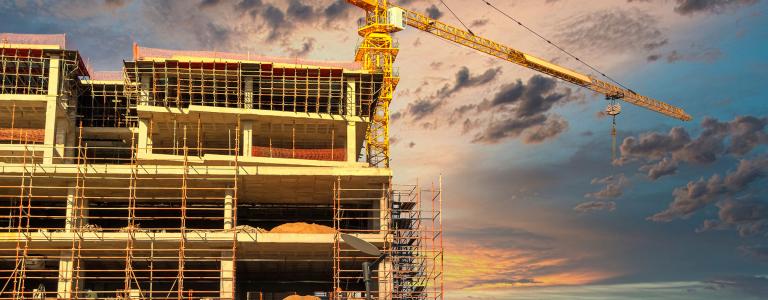Chinese Investment in Africa Rises as Project Values and Bilateral Trade Decline
According to a new government report, China has continued to invest heavily across Africa throughout the pandemic. However, some African countries are suspending or scrutinizing contracts with Chinese firms.
China has created 25 economic and trade cooperation zones in 16 African countries and has continued to invest heavily across the continent throughout the COVID-19 pandemic, according to a government report about Chinese–African economic and trade ties. The zones, registered with China’s Ministry of Commerce, had attracted 623 businesses with a total investment of USD 7.35 billion at the end of 2020, according to the China-Africa Economic and Trade Relationship Annual Report (2021).
While COVID-19 has shaken the global economy and spooked many investors due to uncertainties about how long the crisis will last, Chinese investment in Africa has been climbing, the report says. China invested USD 2.96 billion in Africa last year, up 9.5% from 2019. Almost all of that—USD 2.66 billion—was non-financial direct investment.
The trend is continuing in 2021, according to the 108-page report. Direct investment in Africa amounted to USD 2.07 billion in the first seven months, outperforming the pre-pandemic level in the same period of 2019.
China has been Africa’s largest trading partner for 12 years, even though bilateral trade declined 10.5% to USD 187 billion in 2019. It is also the fourth-biggest investor in the continent.
In particular, China is investing heavily in the African services sector. Investment in subsectors such as scientific research and technology services, transport, warehousing, and postal services more than doubled in 2020, the report says. However, services trade between the two partners fell 20% last year to USD 8.66 billion, it says.
The report was published on September 25, one day before the start of the second China–Africa Economic and Trade Expo, which ran from September 26–29 in Changsha, capital of Central China’s Hunan province. Some 176 trade, investment, project contracting, and strategic cooperation projects worth USD 15.93 billion were expected to be signed during the expo.
African Countries Rethink Chinese Investments
The turnover of Chinese enterprises’ contracted projects in Africa amounted to USD 383.3 billion in 2020, a 16.7% drop from 2019. It was the fifth straight annual decline, the report says, though the value of newly signed contracts for African projects rose more than 21% to USD 67.9 billion, “indicating that African countries still have a large demand for infrastructure.”
But some African countries are rethinking their relationship with China, and some are suspending or scrutinizing contracts with Chinese firms. ANI, citing the Singapore Post, reported that several African countries are abandoning contracts with Chinese companies due to “shoddy” work and a lack of transparency. Most of the projects being cancelled are part of Beijing’s ambitious Belt and Road Initiative.
It all started in July 2020 when a Kenyan high court ordered the cancellation of a USD 3.2 billion contract between Kenya and China for the construction of the Standard Gauge Railway, saying the project was “illegal” because the state-run Kenya railways failed to comply with the country’s procurement laws.
Also, Ghana last year scrapped a USD 236 million contract with Beijing Everyway Traffic and Lighting Tech company to develop an intelligent traffic management system, and the Democratic Republic of Congo is reviewing a USD 6 billion mining deal with Chinese investors, Reuters reported last month.
Johns Hopkins University School of Advanced International Studies’ China–Africa Research Initiative report says that between 2000 and 2019, Chinese financiers signed 1,141 loan commitments worth USD 153 billion with African governments and state-owned enterprises. African countries are suspending or abandoning many of these projects, most of which fall under the Belt and Road Initiative, because they are unable to repay their loans.
You might also be interested in
Making Sense of Trade Turbulence
Suddenly, the world wants to know more about tariffs. Meanwhile, even the most seasoned trade experts are trying to better understand the unprecedented trade policy decisions coming out of Washington. Alice Tipping explains.
FfD4 Countdown: Strengthening trade policy for sustainable development
The Fourth International Conference on Financing for Development (FfD4) in July 2025 is an opportunity to redefine the role of trade policy frameworks in supporting sustainable and inclusive development.
The State of BCAs 2025
As more countries boost their climate ambition, border carbon adjustments (BCAs) are emerging to curb carbon leakage, with the European Union, the United Kingdom, and others advancing their own mechanisms. This publication is the first of its kind taking stock of this trend.
State of the Sector: Critical energy transition minerals for India
This report presents a comprehensive strategy for securing a reliable supply of critical energy transition materials (CETMs) essential to India's clean energy and low-carbon technology initiatives.
